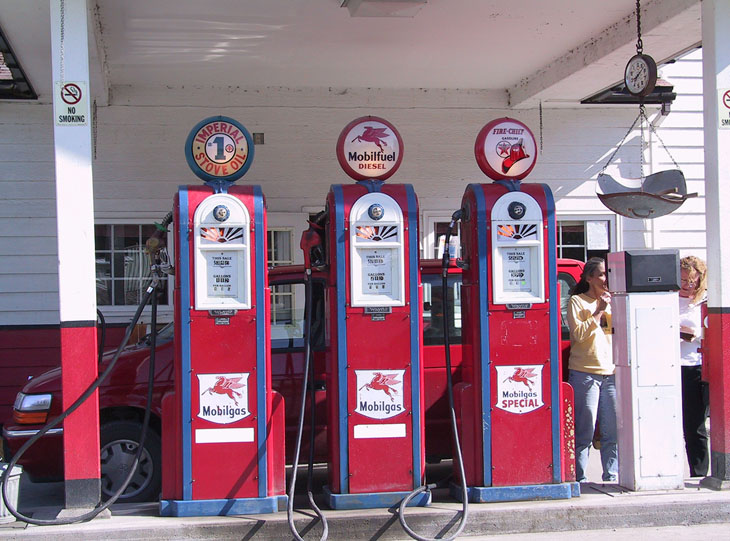Commercial Vehicle Compliance FAQ
Q: |
What is the purpose of Commercial Vehicle Compliance? | ||||||||||
A: |
Commercial Vehicle Compliance helps keep the traveling public safe from dangerous, unsafe trucks and unqualified commercial vehicle drivers, protects the State highway infrastructure and ensures a level playing field for the Industry. Our focus is safety. | ||||||||||
Q: |
What does Alaska Commercial Vehicle Compliance enforce? | ||||||||||
A: |
We enforce 49CFR (Code of Federal Regulations) which the State adapted, and associated State Statutes and regulations concerning Commercial Vehicles. We are also the agency responsible for enforcing the State size and weight regulations for all vehicles. | ||||||||||
Q: |
What is a Commercial Vehicle? | ||||||||||
A: |
Any vehicle or combination of vehicles with a Gross Vehicle Weight Rating of 10,001 pounds or greater used in commerce, a vehicle used to transport HAZMAT or a passenger vehicle with a capacity of 16 or more (including the driver). | ||||||||||
Q: |
When do I need a CDL? | ||||||||||
A: |
A CDL is required to drive any vehicle or combination of vehicles with a GVWR of 26,001 pounds or greater, for transporting HAZMAT or driving a passenger vehicle with a capacity of 16 or more including the driver. | ||||||||||
Q: |
What is a Medical Card? | ||||||||||
A: |
A Certificate of Medical Examination is proof that a driver is physically and medically able to safely operate a commercial vehicle. | ||||||||||
Q: |
Who needs a Medical Card? | ||||||||||
A: |
Anyone that drives a commercial vehicle (10,001 lbs. GVWR or greater). This card must be carried at all times when operating a commercial vehicle. | ||||||||||
Q: |
What types of inspections are performed by Commercial Vehicle Compliance? | ||||||||||
A: |
There are five (5)
levels of inspections:
|
||||||||||
Q: |
Who needs to stop at an open weigh station? | ||||||||||
A: |
All commercial vehicles or combination of vehicles with a GVWR of 10,001 pounds or greater are required to stop for any open weigh station or open roadside inspection site. | ||||||||||
Q: |
Who is responsible for the commercial vehicle if it is found to be overweight or has a safety defect during an inspection? | ||||||||||
A: |
The driver is responsible for everything associated with the vehicle and load once s/he accepts it from the carrier. | ||||||||||
Q: |
Does this include pilot cars and their required equipment on oversize permitted loads? | ||||||||||
A: |
Yes. | ||||||||||
Q: |
Why does Commercial Vehicle Compliance weigh and measure vehicles? | ||||||||||
A: |
To protect the highway infrastructure from damage from overweight and oversize loads and to ensure compliance with the State size and weight regulations. | ||||||||||
Q: |
How do I know if I need a permit for an oversized load? | ||||||||||
A: |
If your vehicle or load exceeds the maximum size or load allowances in 17AAC 25.012 or 17AAC 25.013 and is not a divisible load, you will need a permit to operate on the State highway system. | ||||||||||
Q: |
How do I get an oversize/overweight permit? | ||||||||||
A: |
Call or visit our
Permit office on Huffman Road in Anchorage. The
numbers to the permit office are: (907) 365-1200 (office) (800) 478-7636 (toll free) or (866) 325-2641 (fax) |
||||||||||
Q: |
Who needs to run a Log Book? | ||||||||||
A: |
Every driver of a commercial vehicle is required to maintain an up to date log book at all times unless the driver qualifies for the 100 air mile exemption. | ||||||||||
Q: |
What is the 100 air-mile exemption? | ||||||||||
A: |
It is the exemption
listed in 49CFR
395.1(e). Basically, a driver is exempt of
the regulations of 49CFR 395.8 if:
|
||||||||||
Q: |
What documentation is required by the carrier to prove the driver is exempt? | ||||||||||
A: |
The carrier is required to maintain and retain for 6 months the driver's accurate and true time recordings showing the time the driver reported to work each day, the time the driver was released each day, total number of on-duty hours each day, and the total time for the preceding 7 days in accordance with 49CFR 395.8(j)(2) for drivers used for the first time or intermittently. | ||||||||||
Q: |
What documentation does the driver have to carry to prove he/she is exempt? | ||||||||||
A: |
None. If there is
a question, the Commercial Vehicle Compliance Division will check the driver's file at the carrier. |
Please note: You must have Acrobat Reader to open any documents on this page. If you do not have Acrobat Reader, click to download the FREE software.



